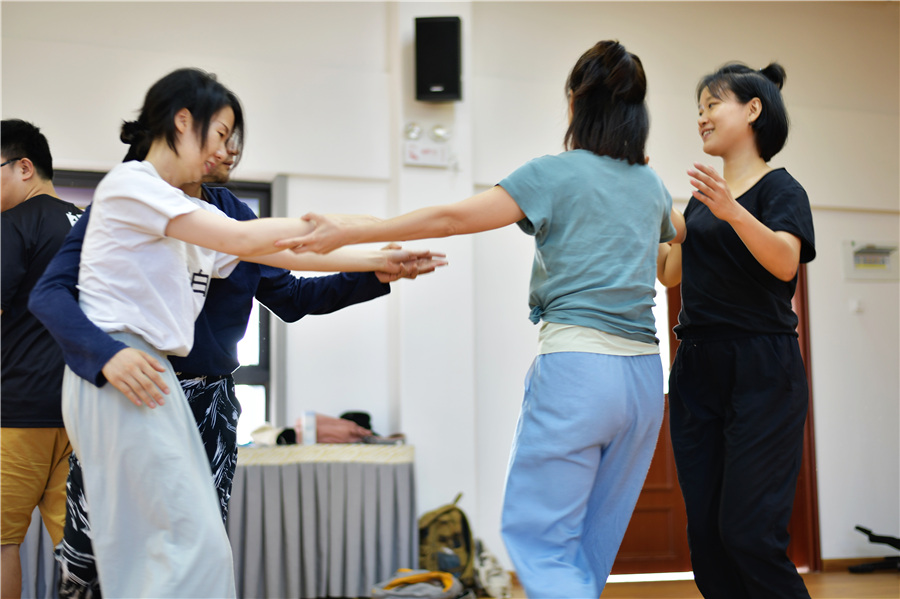Art as chronicler, counselor & consoler


Even though the issue of giving birth is the core of the play, the aim is to say something more generally about the plight of China's migrant workers, of whom there were more than 290 million last year, according to the National Bureau of Statistics.
Despite the conspicuous absence of men in the play, this is not meant to cast them as villains worthy of condemnation because of their lack of participation in parenthood. Rather, that lack of participation is a by-product of the migrant family's lot: the father needs to continue working, and perhaps far away from his family, so as to support them.
"Prejudice and discrimination toward so-called marginal and disadvantaged groups, including these migrant workers, remain present in our society," Zhao says. "We're keen to use these cultural happenings to communicate with the public, so people learn something about how migrant workers live and how they feel.
"I believe that in this way we can help promote a kind of mutual understanding and empathy between different social groups. Empathy is an extremely scarce and valuable resource. We hope people will be able to understand those who are different from us and the situations they're in."
The second edition of the Luminous Festival, highlighting inclusive arts, also included works from other countries, including Franchir la Nuit and Gala from France, Schweigen Impossible from Germany and Artificial Things from the United Kingdom.
























